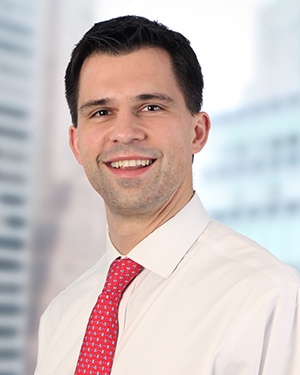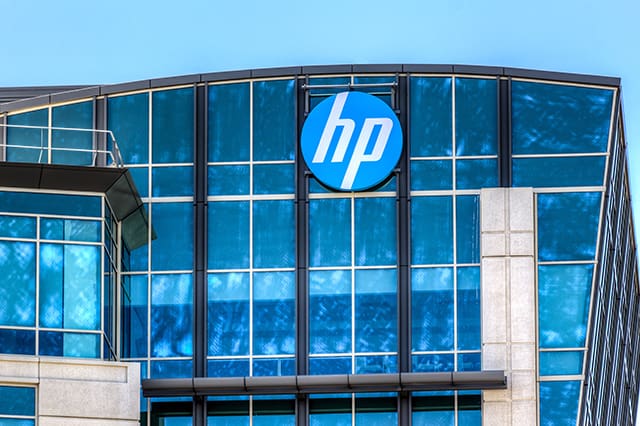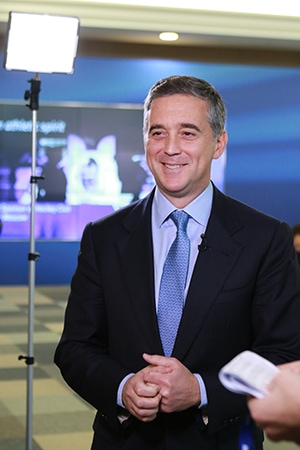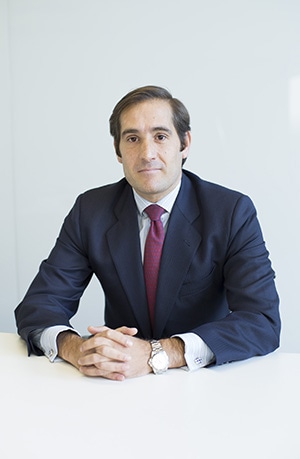In most sectors and regions, 2017 saw gains in investment banks’ bottom lines, a welcome return to form. However, new political paradigms and policies could challenge that growth trend in the months ahead.
Strong economic indicators, as well as incremental upticks in interest rates, have not been wasted on the investment-banking community. Markets globally have been strong this past year, with overall investment-banking revenue rising to $82.4 billion, up from $73 billion in 2016, which at the time was the lowest level since 2012, according to Dealogic.
All regions of the world saw upticks in investment-banking revenues, except for Australasia, which saw a 10% decline in revenues, and Asia ex-Japan, where revenues declined by 2%. The standout region was Latin America, which saw revenues grow by 50% year-on-year. According to Dealogic, the top areas for growth by sector include financial institutions, industrials, energy, natural resources, technology, consumer and retail.
This year’s winners of Global Finance magazine’s Best Investment Banks awards were selected by our editors with input from industry experts using a wide range of criteria, from market share to number and size of deals as well as other criteria, such as service and advice, structuring capabilities, distribution network, efforts to address market conditions, innovation, pricing, after-market performance of underwritings and market reputation.

The winner for 2017 that scored highest on all criteria and took the top spot for overall worldwide Best Investment Bank was J.P. Morgan. J.P. Morgan not only has the largest overall percentage and revenue share, but last year the company completed more than $47 billion worth of transactions with values of $1 billion or less, making it also the busiest investment bank in the mid-market, according to data from Thomson Reuters.
Serving Clients Better
J.P. Morgan has also been a shining example in global debt origination. Its purchase of Bear Stearns at the peak of the global financial crisis a decade ago helped it consolidate market share. Of the fees collected, J.P. Morgan saw a more than 15% rise from 2016 according to Thomson Reuters, with bonds leading the pack followed by mergers and acquisitions, equity and loans. “Our strategy has been very consistent over the years,” says Max Neukirchen, head of strategy for JPMorgan Chase’s corporate and investment bank. “We have a complete product set, we are global and we are at scale, which allows us to serve our clients well and to attract the best talent in the industry. We continue to invest heavily in technology and in our people with a tremendous focus on the client experience to serve our clients better every day.”
Some of the notable deals J.P. Morgan was involved with in 2017 included the Micro Focus acquisition and financing. The firm was lead financial advisor to Micro Focus as it acquired Hewlett Packard Enterprises’ software business and was sole underwriter for approximately $5.5 billion in financing.
“We see positive sentiment and activity across all sectors. A common theme is how technology is transforming sectors,” says Neukirchen, “and even cross-border businesses. Technology and digital are no longer seen as the domain of the tech firms only, but every large company needs to adapt and develop its own strategies to better serve clients.”
Also last year, J.P. Morgan acted as financial advisor to Rockwell Collins when United Technologies acquired the company for $30 billion, in what was described as the second-largest aerospace and defense transaction and eighth-largest industrial deal in North America ever. On UniCredit’s €13 billion ($16 billion) rights issue, J.P. Morgan was joint global coordinator and joint bookrunner.
The bank was also active across emerging market debt. It was involved, for example, in many of the large sovereign deals in the Middle East, including Saudi Arabia’s $9 billion sukuk, the biggest ever Islamic bond issued. It was also a global coordinator on Kuwait’s debut sovereign-bond deal last April.

Regaining Market Share
J.P. Morgan sees continued growth on the horizon. “Overall, the global economy and tax reform in the US have been strong tailwinds for businesses around the world,” says Neukirchen. “CEO confidence is high and the business climate is generally positive. We see this in our M&A pipeline, but also in demand for financings and our balance sheet. In markets, clients have been active since the beginning of the year and we’ve seen an increase in volatility. For the industry, there is more talk about growth and innovation than there has been in previous years.”
In Western Europe, Deutsche Bank (DB) took the top spot for Best Investment Bank. The bank, which remains a powerhouse, had a net loss of approximately half a billion euros for 2017, yet still paid out $2.6 billion in bonuses, most of which went to the investment banking division. In a statement to shareholders, Deutsche Bank CEO John Cryan said he realized the decision “was highly contentious for many, given the reported net loss in 2017.”
The bank is in the middle of a restructuring plan called Strategy 2020. Last October, it was reported that on an analyst call chief financial officer James von Moltke told investors the group made progress in corporate and investment banking by “regaining market share in several important sales and trading areas, like rates.”
In places like India, DB led three out of four insurance IPOs, including the General Insurance Corp of India’s $1.7 billion listing and SBI Life’s $1.3 billion September 2017 IPO, billed as India’s biggest in seven years. In India, DB also helped the government with its sale of a 5% stake in mining unit NLC India (formerly Neyveli Lignite). The sale brought in $116 million.
Also, one of the biggest IPOs to hit Germany in nearly two decades—the Siemens spin-off of its healthcare unit—was partially awarded to DB last year, along with Goldman Sachs and J.P. Morgan. The sale raised $5.2 billion.
In the world of boutique investment banks, 2017 provided an unusual and, perhaps, unique event for investment bank Allen & Company. The New York–based bank, which was awarded Best Boutique Investment Bank for 2017, acted as adviser to music-streaming service Spotify, along with two other banks—Morgan Stanley and Goldman Sachs. Instead of opening up to public ownership, the company decided on a direct listing. It therefore avoided underwriting and other fees. At the time of the listing, media reports called it the largest and highest-profile company to try such an approach in the US.

New Frontiers
Central and Eastern Europe, as well as emerging markets, saw Russia-based VTB Capital take the top spot, mainly due to merger-and-acquisition activity. “2017 was a good year for investment banks in emerging markets, and surpassed most commentators’ expectations, with demand for M&A, debt and equity capital markets services growing significantly compared to 2016,” says Riccardo Orcel, head of global banking at VTB Capital. “Regionally, Russia again saw healthy growth, while China continues to be the main generator of investment bank emerging-market fees. Improved commodity prices, stable currency levels and stronger than expected global growth saw confidence return to emerging markets.”
According to Thomson Reuters data, VTB took 57.3% of the M&A market in Russia as the top financial advisory, with 11 deals worth $27.7 billion. Also, VTB Capital had an M&A market share of 31.7% in Eastern Europe and a market share of 21.7% in India. VTB Capital also ranked as the leading equity capital markets bookrunner in Russia, with a 17.6% market share and 10 completed deals worth $1.2 billion. The investment bank also took 29% of the Russian debt capital markets, with 72 deals worth $12.6 billion.
According to Orcel: “We are seeing strong demand for services from clients in the natural resources, retail and heavy industries. Real estate is also a hot sector of late, while financial institutions have been less active.”
Also in Russia, Renaissance Capital took the top spot for Best Bank in Frontier Markets. Last year the firm opened an office in Cairo, deepening its ties to Egypt. The firm has also been bullish on places like Poland and other parts of Central Europe, as it states in its report on the region: “Central Europe has been an impressive performer in 2017, with Poland the top-performing market in emerging markets year-to-date, as a rebounding eurozone has combined with a still-dovish European Central Bank and as wage growth has picked up across the region as unemployment has fallen, leading to a sweet spot of still-low rates and low inflation, but improving export markets and consumption. We like the growth story heading into 2018; eventual rate hikes are likely to support margins in the region’s banks.”
Up-and-comer Raine Group had an interesting 2017. Following a $70 million investment by Twitter into SoundCloud, the social-media company had to write down 95% of the investment. SoundCloud’s value dropped from $700 million to $150 million due to problematic revenue. Last year, Singapore sovereign wealth fund Temasek, along with Raine Group, injected $170 million into SoundCloud. Also last year, Raine Group opened an office in India and has spent part of 2018 investing in other start-up media and entertainment companies, such as independent studio Propgate Content.
When it comes to IPOs, Credit Suisse, the winner of the Best Bank for IPOs, maintains a commanding presence in the market. It was appointed joint global coordinator and joint bookrunner for the nearly $2 billion IPO of Galenica Santé, a leading healthcare provider in Switzerland. The transaction, which took place in April 2017, at the time ranked as the second-largest IPO in Switzerland in 10 years and as the largest IPO in Europe in 2017.
Outstripping Expectations
Rounding out the global winners is Citigroup as Best Bank for Securitization. In 2017, the bank had a 5.3% share of the investment-banking market and revenue of $5.3 billion, according to Dealogic. In other regional categories, CCB International took the spot for Best Investment Bank in Asia-Pacific. The firm participated in nine out of the 10 largest Hong Kong IPOs last year. Its Guangzhou Rural Commercial Bank IPO was one of the largest IPOs in 2017.

In the Middle East, Samba Capital advised the Saudi Arabian Fertilizer Company on its planned acquisition of Saudi Basic Industries Corp’s 50% equity stake in the National Chemical Fertilizer Company. It also acted on two out of the three major sukuk deals within Saudi Arabia—as a joint financial adviser to Saudi Electricity Company, with respect to extending the final maturity of an existing publicly listed sukuk, and as joint lead manager and bookrunner for Saudi Aramco Company’s debut debt capital market issuance, which raised over 11 billion Saudi riyal ($3 billion).
In Africa, Standard Bank continues to outpace expectations. For the financial year ended December 31, 2017, it brought in a return on investment of 17.1%, up from 15.3% for the same period the previous year. Earnings by the corporate and investment banking unit grew by 11%, to 11.5 billion South African rand ($955 million), with a return on investment of 22.2%, compared with 19.5% a year prior.
Finally, BBVA took the top spot as Best Investment Bank in Latin America. According to José Ramón Vizmanos, head of Corporate and Investment Banking in South America, “In recent years, we’ve carried out two actions whose results we are now seeing: One was the client segmentation to give better coverage to investment banking products for small and medium-size clients; and the other was the creation of a regional corporate-finance team.” BBVA has carried out major mandates such as advising Astaldi on the sale of a hospital in Chile to an international fund; the acquisition of Florida East Coast Railway by a Mexican client (Grupo Mexico), the acquisition of 11% of Gepp in Mexico by a Venezuelan client, Grupo Polar; and advisory services for Portuguese utilities company REN on its purchase of 42.5% of Chile’s Electrogás.
“In recent years, we have boosted our capacities a great deal in corporate finance, debt capital markets and syndicated loans, in both local currency and USD,” says Vizmanos. “This gives us a competitive advantage with respect to local banks and international banks, as we combine the two aspects.”
In the age of Trump, when deals such as Broadcom’s bid for Qualcomm can be shot down, investment banks are watching to see how 2018 plays out. The volatility of markets is also being watched to see if fees from trades offset any losses from advisory fees.
World’s Best Investment Banks 2018
|
GLOBAL WINNERS |
|
|
Global Best Investment Bank |
J.P. Morgan |
|
Best Boutique Investment Bank |
Allen & Co. |
|
Best in Emerging Markets |
VTB Capital |
|
Best in Frontier Markets |
Renaissance Capital |
|
Best Up & Comer |
Raine Group |
|
Best Bank for IPOs |
Credit Suisse |
|
Best Bank for Securitization |
Citi |
|
REGIONAL BEST INVESTMENT BANKS |
|
|
North America |
J.P. Morgan |
|
Western Europe |
Deutsche Bank |
|
Central & Eastern Europe |
VTB Capital |
|
Asia-Pacific |
CCB International |
|
Latin America |
BBVA |
|
Middle East |
Samba Capital |
|
Africa |
Citi |
|
COUNTRY WINNERS |
|
|
Angola |
Standard Bank Angola |
|
Argentina |
Citi |
|
Armenia |
Ameriabank |
|
Australia |
Macquarie Group |
|
Austria |
UniCredit Bank Austria |
|
Bahrain |
GIB Capital |
|
Belgium |
Barclays |
|
Brazil |
Brandesco BBI |
|
Canada |
RBC Capital Markets |
|
Chile |
LarrainVial |
|
China |
China International Capital Corporation |
|
Colombia |
Bancolombia |
|
Cyprus |
Axia Ventures |
|
Denmark |
Nordea |
|
Dominican Republic |
Banco Popular Dominicano |
|
Egypt |
Pharos |
|
Finland |
Nordea |
|
France |
BNP Paribas |
|
Georgia |
Galt & Taggart |
|
Germany |
Commerzbank |
|
Ghana |
Stanbic Bank |
|
Greece |
Piraeus Bank |
|
Hong Kong |
CCB International |
|
Iceland |
Kvika |
|
India |
YES Bank |
|
Indonesia |
Mandiri Sekuritas |
|
Iraq |
Exotix |
|
Ireland |
Fexco Holdings |
|
Israel |
Avalon Capital |
|
Italy |
Unicredit |
|
Japan |
Mizuho Financial Group |
|
Jordan |
Arab Jordan Investment Bank |
|
Kazakhstan |
Kazkommerts Securities |
|
Kenya |
Exotix |
|
Kuwait |
Markaz |
|
Lebanon |
BlomInvest |
|
Malaysia |
Maybank Investment Bank |
|
Mauritius |
Investec Mauritius |
|
Mexico |
BBVA |
|
Mongolia |
Mongolian Investment Banking Group |
|
Morocco |
Attijariwafa Bank |
|
Mozambique |
Rand Merchant Bank |
|
Netherlands |
ING |
|
New Zealand |
ANZ |
|
Nigeria |
FBNQuest |
|
Norway |
Nordea |
|
Oman |
Bank Muscat |
|
Pakistan |
Habib Bank |
|
Peru |
Citi |
|
Philippines |
BDO Capital and Investment Corporation |
|
Poland |
Bank Pekao |
|
Portugal |
CaixaBI |
|
Puerto Rico |
Citi |
|
Qatar |
Qatar National Bank |
|
Russia |
Sberbank |
|
Saudi Arabia |
Samba Capital |
|
Singapore |
Nomura |
|
South Africa |
Rand Merchant Bank |
|
South Korea |
NH Investment & Securities Co. |
|
Spain |
BBVA |
|
Sweden |
Svenska Handelsbanken |
|
Switzerland |
Credit Suisse |
|
Taiwan |
Fubon Financial Holding Co. |
|
Thailand |
CIMB |
|
Turkey |
Garanti Bank |
|
United Arab Emirates |
First Abu Dhabi Bank |
|
Ukraine |
Dragon Capital |
|
United Kingdom |
Barclays |
|
United States |
J.P. Morgan |
|
Vietnam |
VPBank Securities |
Methodology
Global Finance editors, with input from industry experts, corporate executives, investors and consultants, used a series of criteria in order to select the winners of these awards.
Criteria included market share, number and size of deals, service and advice, structuring capabilities, distribution network, efforts to address market conditions, innovation, pricing, after-market performance of underwritings and market reputation.
We used information provided by the banks, as well as material gathered from the other sources, to score and select winners, based on a proprietary algorithm that assigns a different weight to each component. Deals announced or completed in 2017 were considered.
In the review process, Global Finance has focused on the full spectrum of banks, from relatively small ones in frontier markets that have barely appeared on Wall Street’s radar screen to global banks that lead the league tables for equity, debt and M&A worldwide. The same applies to Deals Of The Year and Best Derivatives Providers: They are selected not just based on their size but on their relevance.
This year, greater weight has been assigned to innovation and new technology than in previous years, in light of current trends in global capital markets. As a result, for the first time we have assigned an award to the banks Best For New Financial Technology on a global and regional base, as applied to investment banking.
Many winners submitted, in support of their applications, information and perspectives that may not be publicly available. Banks that do not submit entries can still be selected as winners through Global Finance’s review process, because editors execute their own unbiased original research in addition to evaluating entries. However, experience shows that the banks that submit entries successfully presenting themselves as model financial institutions, with detailed explanations of differentiation in services for corporate clients as compared with services provided by peers, achieve better results.
Financial institutions that submitted entries provided information in the following areas:1) Key financials, including earnings, ROE, and market share; 2) Details of key capabilities and services offered, including deal-structuring capabilities, distribution network and staff dedicated to investment banking; 3) Innovation in financing and new product introduction; and 4) Competitive pricing and after-market performance of underwritten securities. Global Finance adheres to journalistic best practices for protecting the confidentiality of information supplied in the entries.



